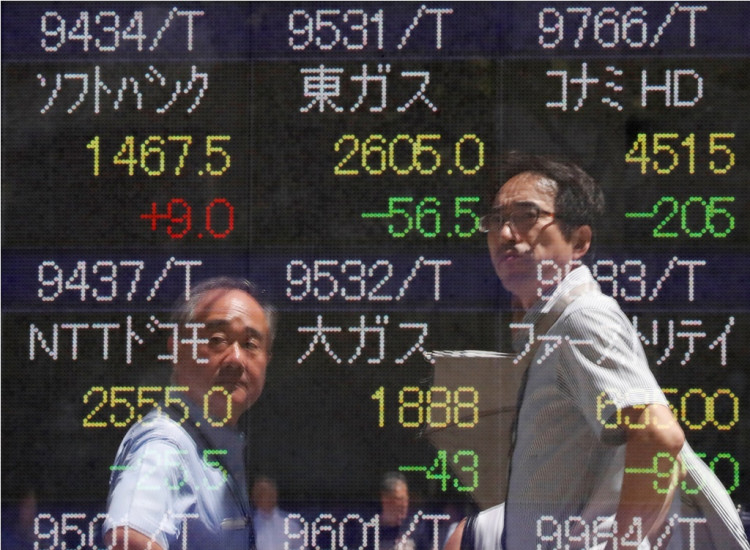Stock indexes in the Asia Pacific region saw mixed trading on Wednesday following the People's Bank of China's (PBOC) move of setting the Chinese yuan's midpoint reference at 6.9996 per dollar.
According to CNBC, the Nikkei 225 of Japan dropped 0.52 percent, the Shenzhen component slightly accelerated by 0.74 percent, the Hang Seng index in Hong Kong slipped by 0.24 percent, and the Shanghai composite rose by 0.25 percent.
While the additions to indexes that saw a gradual hike were not as huge as expected, many analysts pointed out that this is a good sign overall. Head of economics and strategy at Mizuho Bank, Vishnu Varathan, wrote on Wednesday that it appears "risk appetite" has returned.
The mixed but reasonable reaction of Asia Pacific markets came following the PBOC's decision to stabilize the Chinese yuan. Previously, China's currency fell below the seven marks, with global indexes crashing and slipping on Monday.
ANZ Research analysts said the central bank's move despite threats from the U.S. government helped stabilize markets as everyone has been watching the yuan since the trade war kicked off.
Global currencies also reacted to Beijing's move, slightly strengthening against the dollar on Wednesday. The Japanese yen reached 106.17 from below 106 in the previous trading session.
The Dow Jones, meanwhile, closed Tuesday's trading 311.78 points higher, allowing for futures to rebound after five days of losing. Both the S&P 500 and the Nasdaq also hiked.
Meanwhile, U.S. President Donald Trump hinted on Tuesday that his government is prepared in case the trade war lasts until 2020. According to The Guardian, Trump said he will support American farmers if they have a hard time selling goods to Chinese buyers.
Trump's comments came after China confirmed that it has stopped ordering U.S. agricultural products. However, economists noted that Washington's 10 percent tariff threats last week prompted the Chinese government to halt orders.
Economic analysts have been warning that the escalated trade war will take a toll on both the Chinese and U.S. economy. Concerns have been raised about how the White House has been handling its trade dispute with China.
"I think that there is a general concern among the people that I talk to about the increasing incompetence of the White House," former investment banker and now special correspondent at Vanity Fair, William Cohan, said, as reported by Yahoo Finance.
Cohan further explained that the Trump administration has yet to give a reasonable explanation of why Washington started picking a fight with Beijing. "It makes no sense," he said.
It is unclear if the two sides will meet sometime before Trump's 10 percent tariffs take effect on September 1.






